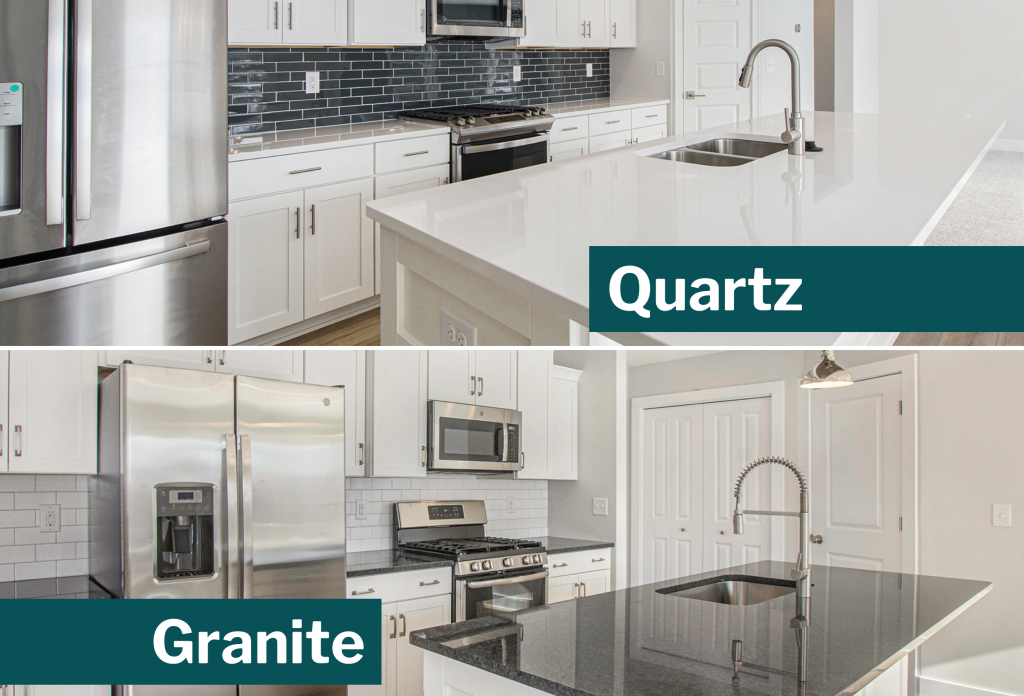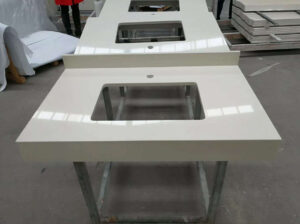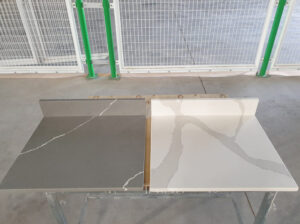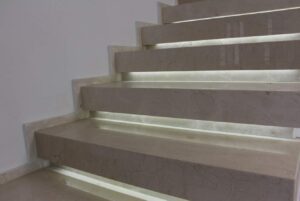
Quartz stone and natural granite are two distinct materials used for various applications in
construction and design. They have different compositions, properties, and manufacturing
processes. Here are the key differences between quartz stone and natural granite:
1. Composition:
Quartz Stone: Quartz stone, also known as engineered quartz or quartz countertops, is a man-made material. It is composed of approximately 90-95%
natural quartz crystals mixed with resins, polymers, and pigments. The high
quartz content gives it its hardness and durability, while the resins bind the
quartz particles together.
Natural Granite: Granite is a natural stone formed from the slow
crystallization of magma beneath the Earth’s surface. It is primarily composed
of minerals such as feldspar, quartz, mica, and other mineral crystals. The
unique combination of minerals gives granite its distinct patterns, colors, and
variations.
2. Appearance:
Quartz Stone: Engineered quartz offers a wide range of colors and patterns,
and its appearance is consistent across slabs. The patterns can be designed and
controlled during the manufacturing process, allowing for more predictable
aesthetics.
Natural Granite: Granite’s appearance varies greatly from one slab to another.
Each granite slab has unique veining, specks, and color variations, making it a
popular choice for those seeking a one-of-a-kind natural look.
3. Durability:
Quartz Stone: Engineered quartz is highly durable and resistant to scratches,
stains, and impacts. It is less prone to chipping and cracking compared to
natural stones.
Natural Granite: Granite is also very durable and can withstand daily wear and
tear. It is resistant to heat and can handle high temperatures, making it suitable
for kitchen countertops.
4. Porosity:
Quartz Stone: Engineered quartz is non-porous, meaning it does not absorb
liquids. It is highly resistant to staining and doesn’t require sealing.
Natural Granite: Granite is a porous material, and some varieties may require
sealing to prevent liquids from penetrating the surface and causing stains.
5. Maintenance:
Quartz Stone: Quartz is relatively low maintenance, requiring only regular
cleaning with mild soap and water to keep it looking new.
Natural Granite: Granite may require periodic sealing and more specific care
to prevent staining and maintain its appearance over time.
6. Origin:
Quartz Stone: As mentioned earlier, quartz stone is a manufactured material,
combining natural quartz crystals with other components.
Natural Granite: Granite is a naturally occurring stone that is quarried from the
Earth&s crust and cut into slabs for various applications.
In summary, quartz stone and natural granite offer different aesthetics, durability, and
maintenance requirements. The choice between the two depends on individual preferences,
design considerations, and the specific needs of the project.


